Nawrin Tabassum
On-device Federated Learning in Smartphones for Detecting Depression from Reddit Posts
Oct 17, 2024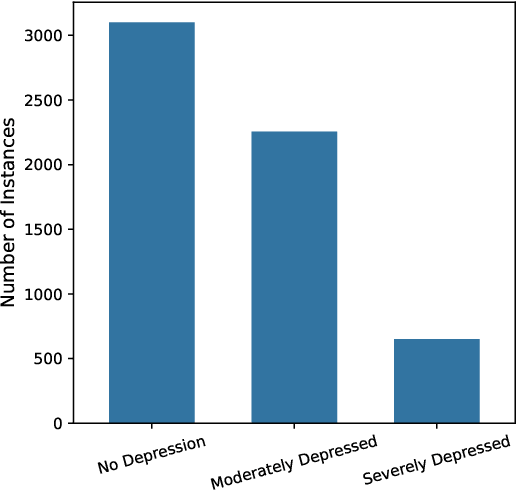
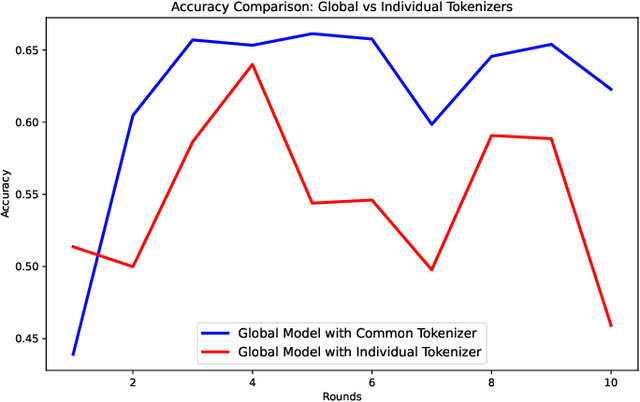
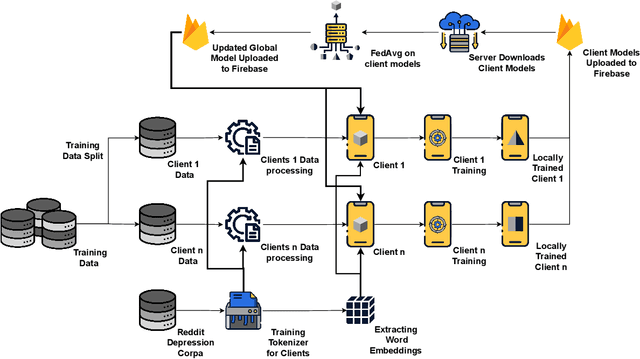
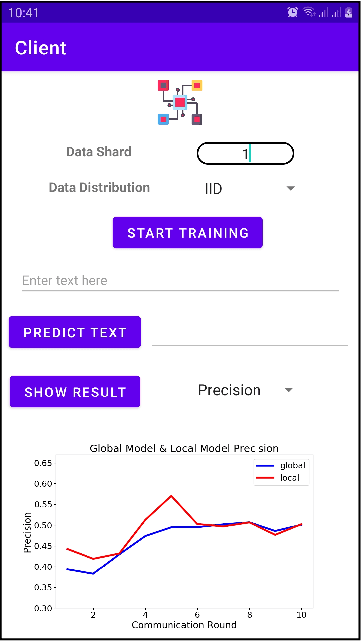
Abstract:Depression detection using deep learning models has been widely explored in previous studies, especially due to the large amounts of data available from social media posts. These posts provide valuable information about individuals' mental health conditions and can be leveraged to train models and identify patterns in the data. However, distributed learning approaches have not been extensively explored in this domain. In this study, we adopt Federated Learning (FL) to facilitate decentralized training on smartphones while protecting user data privacy. We train three neural network architectures--GRU, RNN, and LSTM on Reddit posts to detect signs of depression and evaluate their performance under heterogeneous FL settings. To optimize the training process, we leverage a common tokenizer across all client devices, which reduces the computational load. Additionally, we analyze resource consumption and communication costs on smartphones to assess their impact in a real-world FL environment. Our experimental results demonstrate that the federated models achieve comparable performance to the centralized models. This study highlights the potential of FL for decentralized mental health prediction by providing a secure and efficient model training process on edge devices.
On the Efficiency of Privacy Attacks in Federated Learning
Apr 15, 2024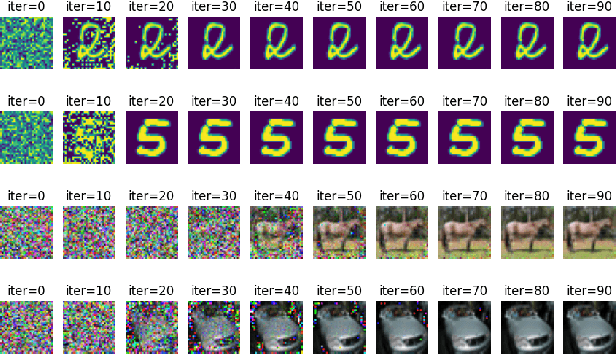

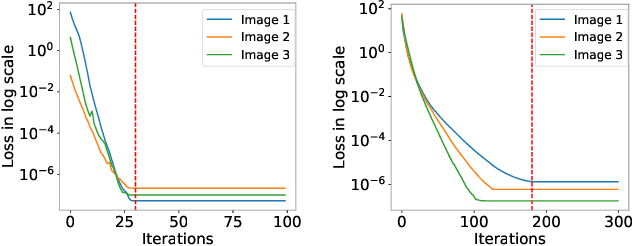

Abstract:Recent studies have revealed severe privacy risks in federated learning, represented by Gradient Leakage Attacks. However, existing studies mainly aim at increasing the privacy attack success rate and overlook the high computation costs for recovering private data, making the privacy attack impractical in real applications. In this study, we examine privacy attacks from the perspective of efficiency and propose a framework for improving the Efficiency of Privacy Attacks in Federated Learning (EPAFL). We make three novel contributions. First, we systematically evaluate the computational costs for representative privacy attacks in federated learning, which exhibits a high potential to optimize efficiency. Second, we propose three early-stopping techniques to effectively reduce the computational costs of these privacy attacks. Third, we perform experiments on benchmark datasets and show that our proposed method can significantly reduce computational costs and maintain comparable attack success rates for state-of-the-art privacy attacks in federated learning. We provide the codes on GitHub at https://github.com/mlsysx/EPAFL.
 Add to Chrome
Add to Chrome Add to Firefox
Add to Firefox Add to Edge
Add to Edge